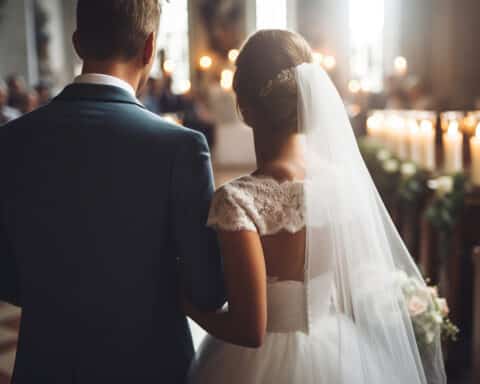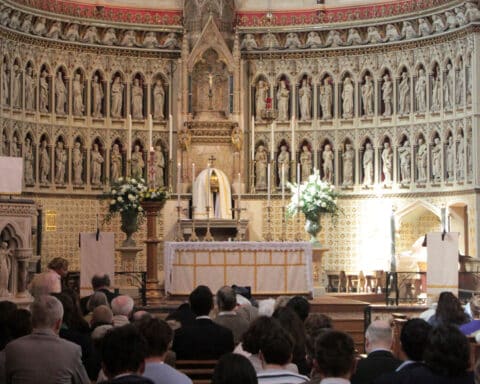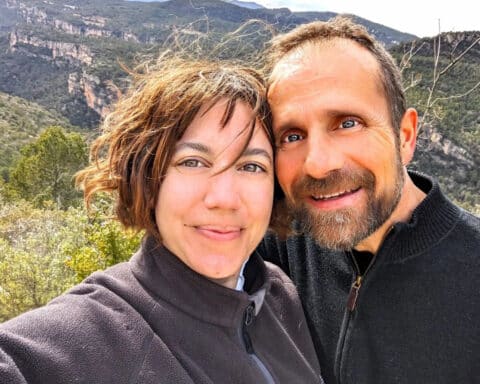
When results were counted and same-gender marriage legalized, Archbishop Eamon Martin of Armagh, the senior Catholic bishop in Ireland, said that the fundamental problem was that too many people do not understand Church teaching on marriage itself.
He referred to Irish Catholics. He could have extended his comment to include very many other Catholics, and people, literally around the world.
What, then, is marriage, as understood by the Church?
A good answer to this question is found in the Catechism of the Catholic Church. It says, “The matrimonial covenant, by which a man and a woman establish between themselves a partnership of the whole of life, is by its nature ordered toward the good of the spouses and the procreation and education of offspring; this covenant between baptized persons has been raised by Christ the Lord to the dignity of a sacrament” (No. 1601).
The Catechism continues. Marriage finds its roots in the very creation by God of human life by Almighty God. In this, marriage acquires its basic definition, dignity and purpose, deeply embedded in the divine plan to provide human beings with holiness in this life and eternal salvation in the next, and to extend this blessed possibility onward through human history.
Because of its sacredness, and its place in God’s loving will that all be saved, marriage demands honest commitment. Each must take the vows fully, without qualification. In every civilization, marriage is a public institution. It should be an outward — indeed, public — manifestation of mutual love, trust and total commitment. The vows are so profound and so critical that they apply until one spouse dies.
Before history was recorded, physical intimacy has been essential to the expression of the bond and commitment integral to marriage. In the natural course of events, assuming physical components exist, the consequence of this intimacy is the conception of new life and consequent upbringing of children, so that they, too, may find in their lives an awareness of God and the way to communion with God everlastingly in heaven.
Therefore, the willingness to have children, even if nature precludes procreation — and this is no disgrace or shadow on the sanctity of a marriage — is, for the Church, essential to marriage.
This last sentence, frankly, sets the Church sharply outside the mainstream of current human thinking. Many Catholics will take exception, believing that, at best, the possibility, or reality, of children ultimately is an ideal.
Some marriages have always been absent of love, spouses distant or unfaithful. Medical issues, or age, affecting situations, are nothing new. Still, not that long ago, every major Christian denomination taught that bringing new life into the world, and leading it to God, were basic to marriage. The Roman Catholic Church holds this Christian tradition.
The Church cannot accept same-gender marriages because persons of the same gender cannot conceive children. It is not about rights. It is about the definition of marriage.
Marriages, like all human experiences, are subject to the moral law, revealed by God. Physical intimacy is fundamental to the definition of marriage. Such intimacy outside marriage is immoral.
For Catholics, the definition as seen by the Church stands on a foundation, a reason, an expectation, living with God, in God’s plan.
Austria’s last emperor and empress, Hungary’s last king and queen, Karl I and Zita, both long gone, were devout Catholics. He is beatified. She is being considered for canonization. Before their wedding, both made retreats, saying that their first duty as spouses was to help each other be good Christians.
They got that right.
Msgr. Owen F. Campion is OSV’s chaplain.





